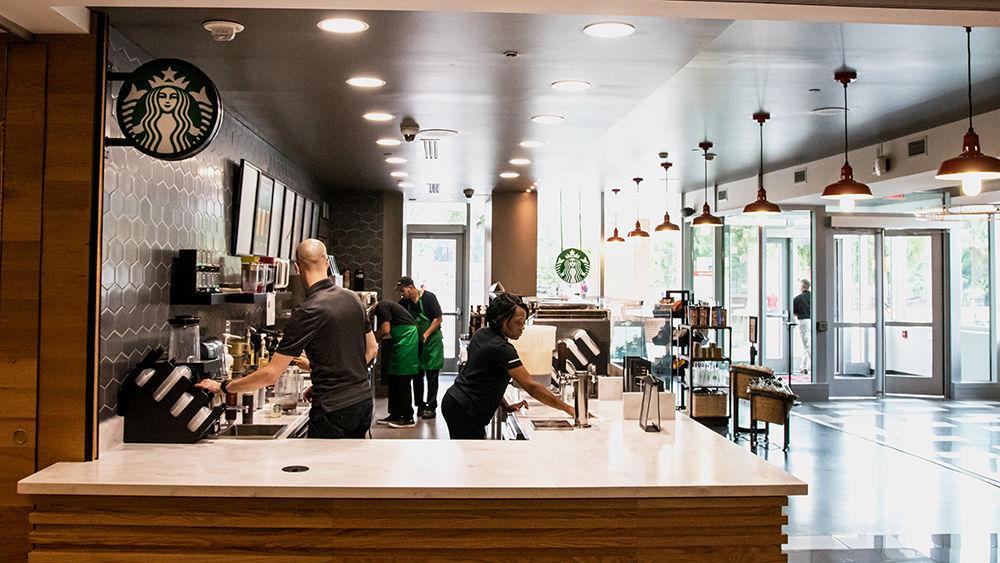NC State’s campus thrives year-round with its on-campus housing, dining and study halls. Despite campus facilities operating under modified hours, there’s still much to take advantage of on campus this summer.
Kayla Grogan, a second-year studying political science, said living on campus over the summer means fewer students, so it’s quieter and “feels more like living in an apartment.”
One of campus’ biggest social hubs, Talley Student Union, remains open almost all day every day for current students, prospective students, alumni and anyone else who wants to explore NC State. Even though there are fewer students over the summer, Talley remains a great place to meet up with friends, grab some Howling Cow ice cream or study for classes. Regardless of what brings you there, Talley remains an essential part of campus life.
Summer dining plans are also still accessible over the summer. Unlike last summer, when there were limited options available, campus dining has opened several of its dining facilities in Talley and in the On the Oval food court on Centennial campus. As a result, students who rely on their meal plans have significantly more variety this summer.
It’s also advantageous for students since they have less of a wait for their food while also juggling going to class. Sara Luber, a fourth-year studying political science, said her favorite part of living on campus over the summer is that there’s never a line for Starbucks — a noteworthy change from the school year, when it seems that every student needs their daily coffee fix.
Additionally, countless other facilities and resources remain available during the summer. These resources include access to libraries, transportation services, Student Health and many others.
“I feel like I can actually use all the resources on campus now because everything is less crowded,” Grogan said.
Living on campus over the summer also has its downsides. The biggest complaint for summertime on-campus residents is the transportation system. Due to the reduced demand for transportation on campus, the NC State buses run each route every 30 minutes, which is difficult for students to plan around. Luber said NC State Transportation’s lack of bus routes has inconvenienced her over the summer, since she doesn’t have a car with her.
Many students living on campus over the summer — typically freshmen, who don’t qualify for a parking pass, or foreign exchange students — also lack a car. Because of this, students who depend on public transportation wish they felt more prioritized.
In addition to transportation-related inconveniences, the additional fee students must pay for access to Carmichael Gym is not ideal.
“My biggest qualm with summer housing is that gym access is not included for students living on campus, unless they are taking a summer class,” Grogan said.
Grogan, who was enrolled in a Summer Session I course, said she wasn’t able to enjoy access to the gym during summer session II, despite the fees she is required to pay to live on campus.
Regardless of the unfavorable transportation system and a lack of access to the gym, living on campus over the summer still comes with just as many benefits as the regular fall and spring semesters. One may consider the less crowded campus to be a huge perk of on-campus living during the summer because it makes getting to class easier. Whether you want some quiet in the library, shorter lines for dining or closer proximity to classes, NC State offers just that with its on-campus living accommodations.



















